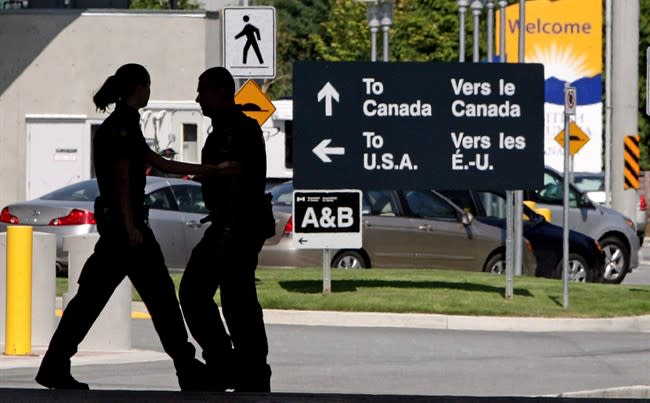 Daily Brew
Daily BrewWrong turn ensnares another American in Canada’s tough gun-control laws

Another American has found himself apparently by accident on the wrong end of Canada's gun-control laws.
Louis DiNatale says he and his wife were on their way from their home in Kentucky for a holiday in Vermont when a wonky GPS led them to the Canada-U.S. border crossing at Thousand Islands Bridge between New York and Ontario.
Unable to make a U-turn on the bridge, the DiNatales had go through the Canada Border Services Agency (CBSA) checkpoint.
DiNatale told the Los Angeles Times he was asked if he had any weapons in the car. When he replied that he didn't, the border agent followed up with several more questions about guns.
DiNatale, a retired soldier, replied candidly that, yes, he did own guns and had a permit in his home state to carry a concealed handgun.
"He asked me when was the last time I had a weapon on me. I told him, 'Earlier that week.' He asked me again, 'Why?' I told him it was my right as an American citizen to do so."
That's when things went sour.
Officers decided to search the DiNatales' car and turned up a loaded .380-calibre handgun in the centre console.
[ Related: Wrong turn into Canada lands yet another American in trouble ]
DiNatale's explanation that he'd forgotten it was there apparently didn't satisfy them. He was handcuffed, interrogated and put under arrest for attempting to smuggle the gun into Canada and lying to officers about it.
DiNatale spent four days locked up before he was able to post bail but is scheduled to be tried in June, the Times said. If convicted, he could be sentenced to up to three years in prison.
His Canadian lawyer, Bruce Engel, said the CBSA over-reacted to what was an honest oversight by DiNatale, who ironically served in the U.S. Army as a legal expert and now works as a paralegal in Louisville, Ky.
DiNatale tried to explain that he had stashed the gun in the console of his wife's car because he didn't want to leave it in his own vehicle while attending a dental appointment. He'd simply forgotten it was there, he said. Engel told the Times DiNatale's wife confirmed the story.
"They could have done their homework and looked at his background and seen he's a professional," Engel said. "They could have accepted the word of his wife and released him on his own recognizance."
Instead, the lawyer said the CBSA is using the incident last September to send a message to Americans: "Don't mess with our borders."
If that's true, it appeared to work. The Times' account of DiNatale's case received wide play in the U.S. as a cautionary tale about the difference between American and Canadian gun laws.
"Don't bring your guns into Canada," CBSA representative Jean D'Amelio Swyer was quoted on the web site Guns.com. "Leave your firearms at home. But if by chance they do have a firearm in the car, it is imperative that they declare it."
Americans are allowed to bring guns into Canada if they declare them and get a temporary permit, which costs $25 for up to three firearms.
However, it's possible DiNatale's pistol might not have qualified anyway since the compact semi-automatic has a barrel length of less than four inches, which makes it a prohibited weapon on Canada.
[ Related: ‘Honest mistake’ lands Utah student in jail for bringing handgun across Canadian border ]
Although illicit cross-border gun smuggling is a major problem, many guns the CBSA turns up are owned by Americans who brought them up inadvertently. Some aren't aware of Canada's tougher gun-control laws, though the U.S. Embassy's web site has detailed information for Canada-bound travellers. Others say they simply forgot them, like DiNatale.
One of the highest-profile recent cases involved Kraig Jacobson, a Utah university student caught with a pistol in his belongings while on a six-week motorcycle camping trip that took him and his brother through Canada in the summer of 2012.
Jacobson was jailed for almost three weeks and spent almost four months in Canada before agreeing to plead guilty to the gun charge and being allowed to go home, he told the National Post.
There's a closer parallel between DiNatale and Dimitrius Walker, a Chicago man visiting family in Detroit last year, who ended up on the Ambassador Bridge to Windsor, Ont., after he took a wrong turn.
A CBSA search of his car turned up a 9mm pistol in the trunk, for which Walker had a permit in his home state of Illinois. Walker was arrested and, though released on bail, also faces a prison term if convicted.
But Walker and Jacobson made things worse for themselves by lying. Jacobson told border officers he didn't have any firearms and Walker, when his gun was discovered, at first claimed it wasn't his.


